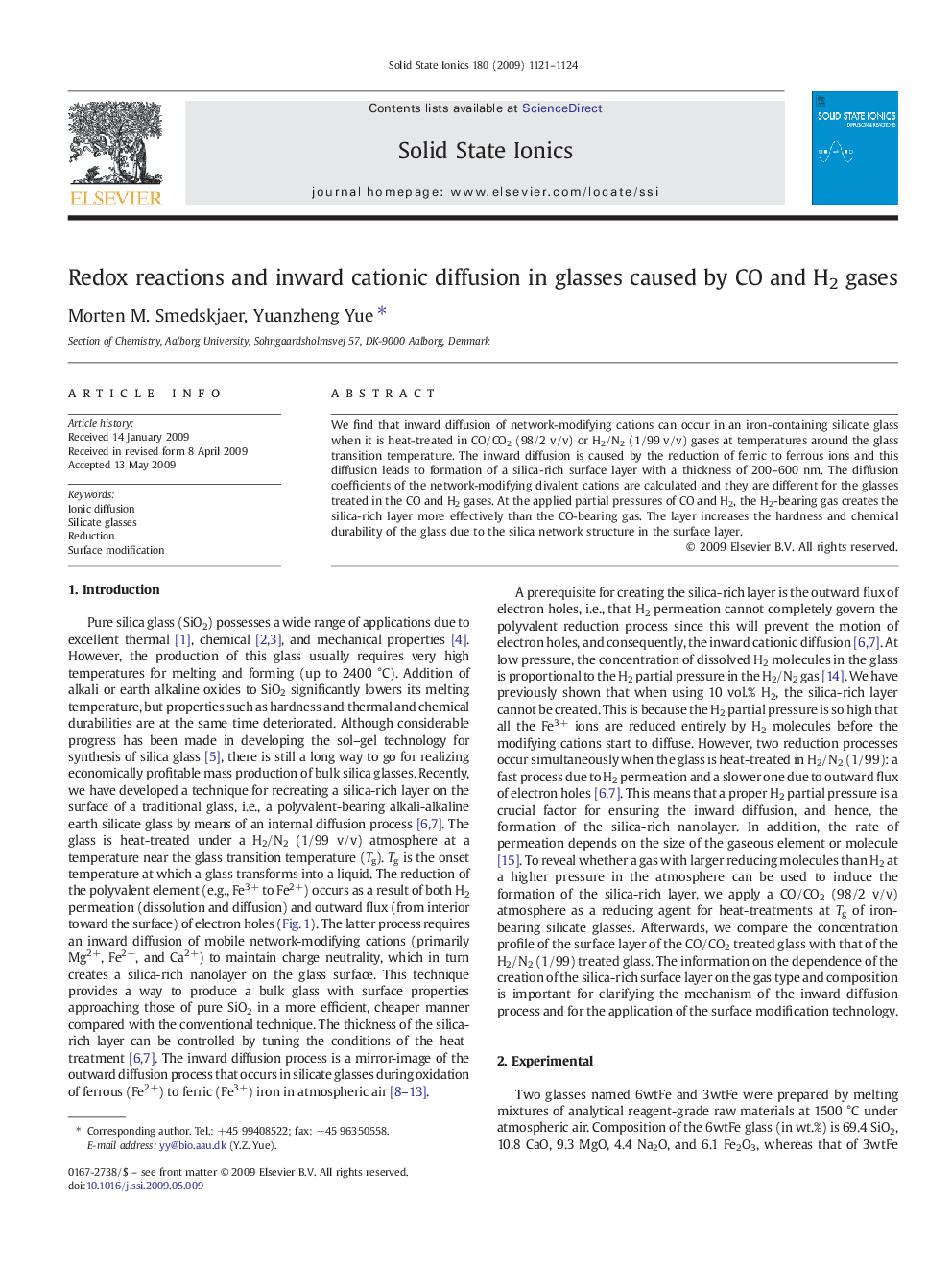| Article ID | Journal | Published Year | Pages | File Type |
|---|---|---|---|---|
| 1297831 | Solid State Ionics | 2009 | 4 Pages |
We find that inward diffusion of network-modifying cations can occur in an iron-containing silicate glass when it is heat-treated in CO/CO2 (98/2 v/v) or H2/N2 (1/99 v/v) gases at temperatures around the glass transition temperature. The inward diffusion is caused by the reduction of ferric to ferrous ions and this diffusion leads to formation of a silica-rich surface layer with a thickness of 200–600 nm. The diffusion coefficients of the network-modifying divalent cations are calculated and they are different for the glasses treated in the CO and H2 gases. At the applied partial pressures of CO and H2, the H2-bearing gas creates the silica-rich layer more effectively than the CO-bearing gas. The layer increases the hardness and chemical durability of the glass due to the silica network structure in the surface layer.
